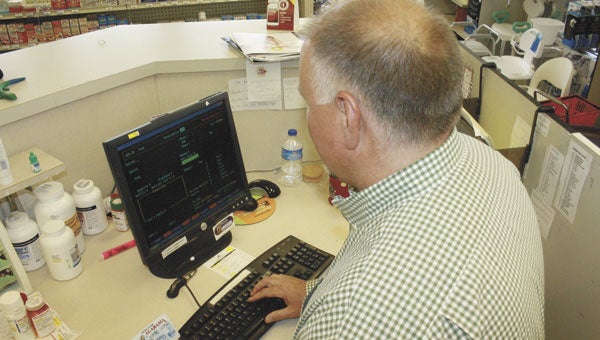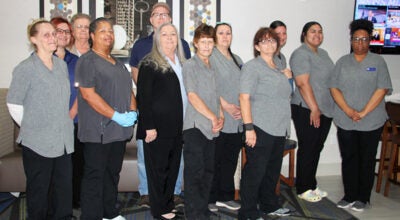New law, tracking aid in meth fight
Published 12:10 am Tuesday, April 16, 2013
In Alabama, smurfing has nothing to do with little blue people and everything to do with little pseudoephedrine pills.
Now, with the strike of a computer key, law enforcement can track the purchase of those pills anywhere in the state – helping to crack down on the manufacturing of meth in Alabama.
Law enforcement agrees, it’s difficult to fight methamphetamine – it’s cheap, easy to make, easy to transport, highly addictive and one of the worst drug problems ever seen, and according to officials, Covington County is serving as a national role model in enforcing the unique law.
On Monday, area law enforcement, state officials and pharmacy staff launched a new anti-smurfing public education campaign designed to help crack down on the use and production of methamphetamines in the county.
“Smurfing is basically when a person is paid to go in and buy pseudoephederine medicine and then that pseudo is used to make meth, and we want them to know that under this new law, that is now a felony,” said Rick Heartsill of the Consumer Healthcare Products Association.
“Alabama has the best law in America when it comes to fighting meth, making it a national leader,” he said. “We work all over the state, and I don’t know of a county that does more on the meth front than Covington County. What’s being done here is a great test case of how to fight meth most effectively.”
The law limits the amount of the drug that can be sold in a month at 7.5 grams. All sales are tracked through a system called the National Precursor Log Exchange (NPLEx).
Under the law, pseudoephedrine may only be sold in a pharmacy, and must be kept behind a counter. Customers must also provide a valid legal ID and be at least 18 years of age to purchase the product.
“Those databases, once a person gets to the limit, no long allowed to purchase any more for the rest of that calendar month,” Merrell said. “It makes it very difficult for one person to go to nine different pharmacies in a day to purchase pseudo.
“That stops the production before it starts,” he said. “The addict is the end result of meth production. What we really want to deal with is the manufacturing and the cooks.”
The NPLEx system also gives police real-time email alerts of purchases made by those under investigation.
According to Drug Task Force agents, one box of pseudo will make an estimated 4 grams of meth.
DTG agents have made several arrests under the new law; however, law enforcement wants the public to be wary – especially those age 18 and older.
“What happens is these cooks, they get kids over 18 in parking lot of store and say, ‘I’ll give you $45 to buy this $5 box of pills,” said DTF Commander Mark Odom. “Then, their name isn’t on the list. The kid’s is and they haven’t gone over their limit.”
Merrell said the danger is the child is subject to being charged as part of the manufacturing process.
“So folks need to be real learry of someone approaching them in the parking lot asking them to buy something,” he said.
DTF agent Greg Jackson said the monthly quota of 7.5 grams of pseudo will make approximately “two cooks,” meaning, “Those cooks have got to get those pills from somewhere else.





